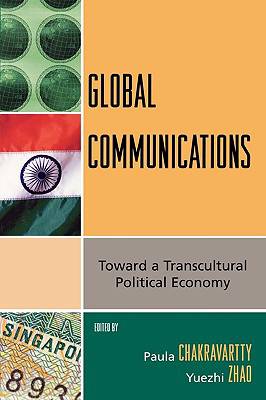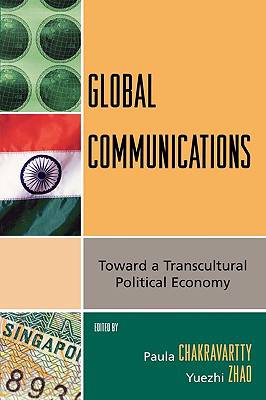
- Afhalen na 1 uur in een winkel met voorraad
- Gratis thuislevering in België vanaf € 30
- Ruim aanbod met 7 miljoen producten
- Afhalen na 1 uur in een winkel met voorraad
- Gratis thuislevering in België vanaf € 30
- Ruim aanbod met 7 miljoen producten
Zoeken
Global Communications
Toward a Transcultural Political Economy
€ 99,95
+ 199 punten
Omschrijving
This provocative book takes a new approach toward understanding the uneven flows of global communications, focusing on areas of the state, the market, and society. Wielding a political-economic view of communication and culture, this international group of authors follows interesting developments, from communication NGOs in Africa to affirmative action in India's information technology job market. Other cases spotlight China, Singapore, Venezuela, Palestine, Arab nations, Ghana, Canada, the United States, Russia, and the European Union. Theoretically driven and empirically grounded, Global Communications avoids alarmist or celebratory approaches.
Specificaties
Betrokkenen
- Uitgeverij:
Inhoud
- Aantal bladzijden:
- 372
- Taal:
- Engels
- Reeks:
Eigenschappen
- Productcode (EAN):
- 9780742540453
- Verschijningsdatum:
- 1/04/2008
- Uitvoering:
- Paperback
- Formaat:
- Trade paperback (VS)
- Afmetingen:
- 147 mm x 221 mm
- Gewicht:
- 566 g

Alleen bij Standaard Boekhandel
+ 199 punten op je klantenkaart van Standaard Boekhandel
Beoordelingen
We publiceren alleen reviews die voldoen aan de voorwaarden voor reviews. Bekijk onze voorwaarden voor reviews.






